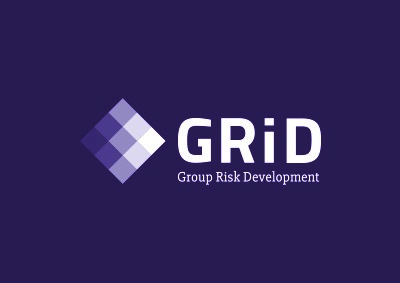Press release 2 May 2023.
Although 80% of employers currently record sickness absence, that leaves a fifth (20%) who do not according to new research1 from GRiD, the industry body for the group risk sector. In addition, 59% record the impact of sickness absence but 41% do not.
Both the incidence of sickness absence recording and the measurement of its impact have dropped in 2023 compared to the past three years2:
- In 2023, 80% record sickness absence and 59% measure its impact.
- In 2022, 85% recorded sickness absence and 63% measured its impact.
- In 2021, 84% recorded sickness absence and 63% measured its impact.
- In 2020, 85% recorded sickness absence and 65% measured its impact.
The 2023 figures show a clear drop in the number of businesses that record sickness absence and its impact, which is likely to be because the onset of hybrid working has made it much more difficult for employers to record this data. Absence is simply less visible in a hybrid-working world, and, coupled with the difficulty in collecting the data, some employers may have just stopped collating the figures.
Katharine Moxham, spokesperson for GRiD, said: “It’s important that employers understand that measuring sickness absence is not a draconian measure with which to hold employees to account, it’s about spotting patterns in the employee population as a whole. When reasons for absence are understood, it’s possible to implement an employee benefits framework that offers effective support. Putting the case to expand or change the support becomes more challenging without being able to quantify absences and the impact they are having.”
Recording the impact of absence
Of those businesses who do understand the benefits of documenting the impact of staff sickness, recording the number of lost hours or days was the most favoured method (46%), followed by calculating the cost of lost productivity (39%). Thirty eight percent analyse indirect costs – such as colleagues covering work, learning time, management time; 37% calculate the cost of sick pay provision e.g. Statutory Sick Pay and salary costs; 30% estimate costs related to presenteeism/leavism, and 29% look at the direct costs such as for temps and agency fees.
Katharine Moxham continued: “By recording the impact of sickness absence, employers will be in an informed position to make decisions about which individual employees or which groups of employees need support. The earlier this intervention is triggered, the more chance of success it has.”
Early intervention on a par with supporting long term sick
It’s a commonly held belief that good work is good for people. The opposite is also true in that when employees are off work due to injury or illness, they often report that their mental, financial and social wellbeing declines. Therefore, it’s important that employers not only strive to help those with health conditions to stay in or return to the workplace but they should also be looking at early intervention measures to reduce the length of absence, and preventative measures and encouraging better health behaviours to mitigate someone going off in the first place.
Absence management support
Group risk benefits (employer-sponsored life assurance, income protection and critical illness) offer a variety of support, that can begin even before day one of absence by providing help for issues such as dealing with debt and relationships, so that they don’t escalate and cause future absences.
Similarly, when someone does go off ill, support can begin on day one of absence with the case being assessed by vocational rehabilitation experts who will put forward a tailored programme aimed at achieving a safe and sustainable return to work.
Employer benefits
Employers also benefit in a number of ways because this early intervention support is embedded into the policy so there is no need to fund these initiatives separately. By stepping in before an employee becomes long-term sick, the chances of the case going to claim are also mitigated. In fact, bonuses and cashback on policy premiums are both growing in popularity for employers who are efficient in absence management.
Katharine Moxham concluded: “Absence management is best tackled when employers have a good handle on their data and workplace issues such as stress or long hours can be managed when this is discussed at regular intervals with their adviser and insurer. There’s a great deal of support embedded into employee benefits, and advisers and insurers will be best-placed to advise how that support can be applied to support employees before they go off sick and to increase successful returns to work.”
- Ends –
- The research was undertaken by Opinium from 9-22 January 2023 among 503 HR decision-makers and from 10-13 January amongst 1,212 employees at UK businesses.
- Research for 2020, 2021 and 2022 also undertaken amongst 500 HR decision-makers in January of each year.
For further information please contact:
Ali Cort
SMUK Marketing and PR
Mob: 07887484247
Katharine Moxham
Spokesperson for GRiD
Katharine.moxham@grouprisk.org.uk
Mob: 07887 512508
Notes for editors
About GRiD
Group Risk Development (GRiD) is the industry body for the group risk sector, promoting the value to UK businesses of providing financial protection for their staff, enhancing their wellbeing and improving employee engagement. Our membership includes insurers, reinsurers, intermediaries and those operating in (or with other interests in) the UK group risk market. Together this forms a collective wealth of experience built over many years. Under the chairmanship of Paul White (head of technical, Howden Employee Benefits & Wellbeing) GRiD aims to promote group risk through a collective voice to Government, policymakers, stakeholders and employers.
GRiD works with government departments and regulators involved in legislation and regulation affecting group risk benefits, and with other organisations involved in the benefits and financial protection arenas. GRiD also seeks to enhance the industry’s standing by encouraging best practice and by participating in industry-wide initiatives such as the professional qualification in group risk managed jointly with the Chartered Insurance Institute.
GRiD’s media activity aims to generate a wider awareness and understanding of group risk products and their benefits for employers and employees.
GRiD’s dedicated spokesperson, Katharine Moxham, provides expert media comment on a full range of group risk issues.
Follow Katharine Moxham on Twitter @KMoxham


